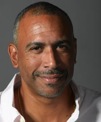 |
| Sam Piha |
We asked a number of afterschool leaders two questions:
- In looking ahead to 2016, what do you see as the important emerging trends in expanded learning programs?
- Looking ahead to 2016, what do you see as the most significant challenge facing the field of expanded learning?
Below are their responses to our questions.
EMERGING TRENDS IN EXPANDED LEARNING PROGRAMS
 |
| Lucy Friedman, President of ExpandED Schools |
 |
| Alison Overseth, Executive Director, Partnership for After School Education |
Quality, quality, quality. We cannot take our eye off the investment it takes to do this work well...and if we are not doing the work at a high quality level we will not achieve desired outcomes and will not be providing the opportunities all children deserve.
It's past time to break down the unnatural silos of cognitive and noncognitive learning. Schools need to learn from youth developers and youth developers from schools -- optimally we will see increasing investment in joint professional development and professional exchanges.
Jodi Grant: I think STEM and Physical Activity will continue to be important. I am also hopeful that there will be a growing focus on social and emotional learning/skills and professional development. I think giving the valuable youth and child development principles more importance in valuing and evaluating programs.
Jane Quinn: Important emerging trends: More receptivity on the part of schools to social and emotional learning as a valid (and desired) goal of Expanded Learning Program; continued emphasis on, and funding for, STEM programs; increased emphasis on college prep and retention.
Bill Fennessy: Career and Work Based Learning programs. It is important that we have different versions for Elementary School, Middle School, and High School.
MOST SIGNIFICANT CHALLENGE FACING THE FIELD OF EXPANDED LEARNING
Lucy Friedman: One challenge facing the field of expanded learning is ensuring that people outside the field understand what is meant by the term. ‘After school’ was easily defined (though, often misperceived as simply child care.) But ‘expanded learning’ is not as ubiquitously understood. Practitioners of expanded learning time may have variations in their definition based on differences in models.
The challenge facing both the after-school and expanded learning movement is that too many educators, funders and policy makers seek a quick fix and judge the quality of a model by standardized test scores alone. But the reality is that success can come in many forms. In the desire to close the achievement gap, there's too much emphasis on test prep and not enough focus on the life-enriching activities that foster curiosity, instill confidence, and ultimately lead to a passion for learning. Research, and anyone who’s ever watched a kid grow up, tells us that these characteristics are critically important for a successful adulthood.
Alison Overseth: There is currently often a disconnect between broad policy initiatives and implementation into good practice. Practice needs to better inform policy, and policy must include the investment required to change, strengthen and sustain new or expanded programs. The best ideas in the world will work or fail based on an adult's (or community's) interaction with a child.
Jodi Grant: Funding is a constant issue. At best it is stagnant in most places, but budget cuts are rampant and costs continue to rise for programs – especially labor costs. We also need to keep educating.
Jane Quinn: Serious funding concerns, especially at the Federal level— how will the ESEA reauthorization impact the intent of the afterschool movement and the 21st Century CLC funding?
Bill Fennessy: The rising cost of everything with 10 year old funding levels. More specifically, how will we address the rising cost of labor, given the changes in the minimum wage?
 |
| Jodi Grant, Executive Director Afterschool Alliance |
Jodi Grant: I think STEM and Physical Activity will continue to be important. I am also hopeful that there will be a growing focus on social and emotional learning/skills and professional development. I think giving the valuable youth and child development principles more importance in valuing and evaluating programs.
 |
| Jane Quinn, Vice President, Children's Aid Society |
Jane Quinn: Important emerging trends: More receptivity on the part of schools to social and emotional learning as a valid (and desired) goal of Expanded Learning Program; continued emphasis on, and funding for, STEM programs; increased emphasis on college prep and retention.
 |
| Bill Fennessy, Director of Community Engagement, THINK Together |
Bill Fennessy: Career and Work Based Learning programs. It is important that we have different versions for Elementary School, Middle School, and High School.
MOST SIGNIFICANT CHALLENGE FACING THE FIELD OF EXPANDED LEARNING
Lucy Friedman: One challenge facing the field of expanded learning is ensuring that people outside the field understand what is meant by the term. ‘After school’ was easily defined (though, often misperceived as simply child care.) But ‘expanded learning’ is not as ubiquitously understood. Practitioners of expanded learning time may have variations in their definition based on differences in models.
The challenge facing both the after-school and expanded learning movement is that too many educators, funders and policy makers seek a quick fix and judge the quality of a model by standardized test scores alone. But the reality is that success can come in many forms. In the desire to close the achievement gap, there's too much emphasis on test prep and not enough focus on the life-enriching activities that foster curiosity, instill confidence, and ultimately lead to a passion for learning. Research, and anyone who’s ever watched a kid grow up, tells us that these characteristics are critically important for a successful adulthood.
Alison Overseth: There is currently often a disconnect between broad policy initiatives and implementation into good practice. Practice needs to better inform policy, and policy must include the investment required to change, strengthen and sustain new or expanded programs. The best ideas in the world will work or fail based on an adult's (or community's) interaction with a child.
Jodi Grant: Funding is a constant issue. At best it is stagnant in most places, but budget cuts are rampant and costs continue to rise for programs – especially labor costs. We also need to keep educating.
Jane Quinn: Serious funding concerns, especially at the Federal level— how will the ESEA reauthorization impact the intent of the afterschool movement and the 21st Century CLC funding?
Bill Fennessy: The rising cost of everything with 10 year old funding levels. More specifically, how will we address the rising cost of labor, given the changes in the minimum wage?











